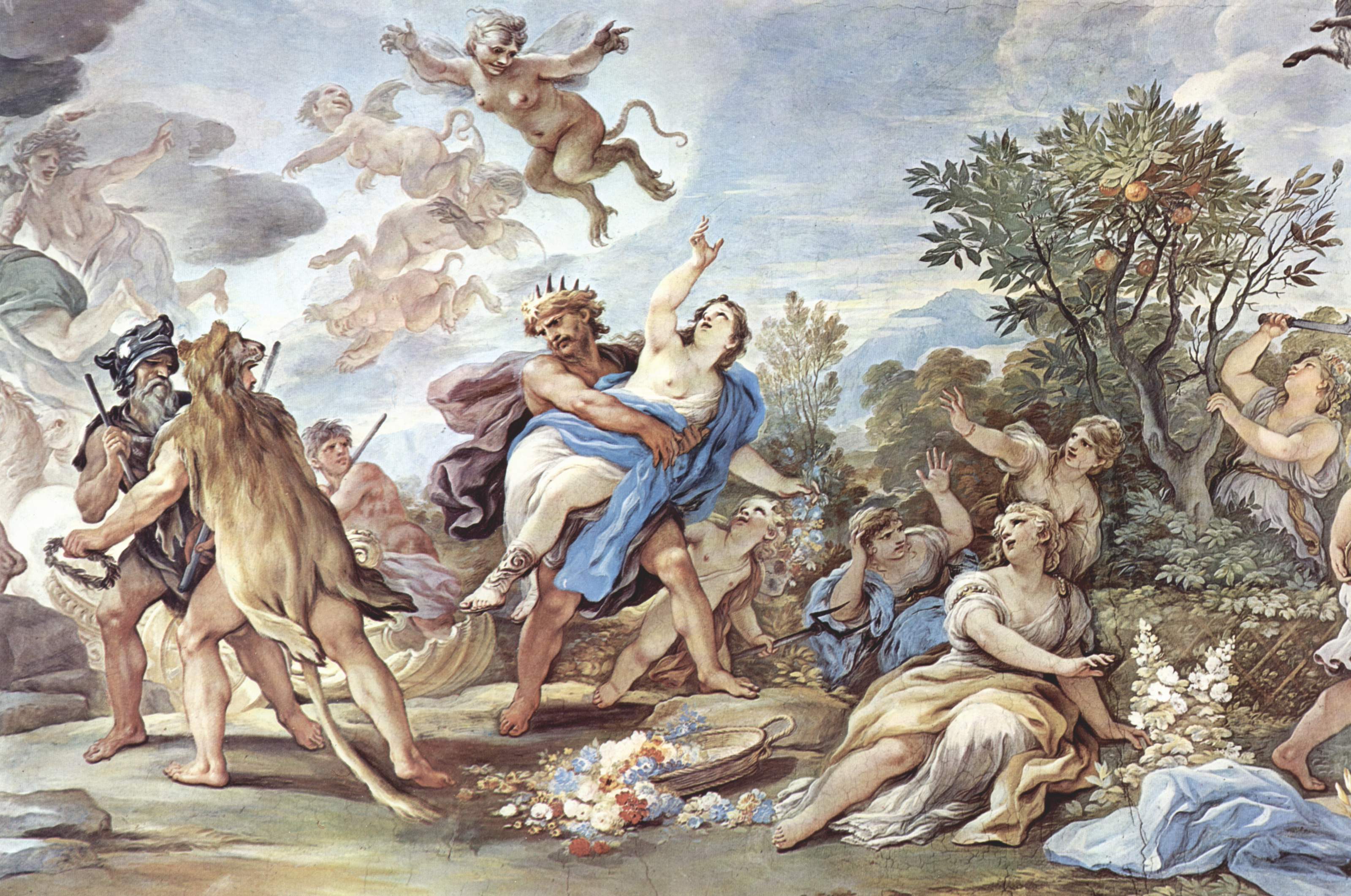Spooky goddesses, these two, spending half of their time in the Underworld like that. They're not involved in a great number of myths, which makes it even harder to find differences between the Greek and the Roman version, but I managed to track down a couple.
For having a mother in charge of making crops grow and a husband in charge of the Underworld, Persephone / Proserpina was considered responsible for the period when the seeds were underground, during their winter “death”, before the spring “rebirth”. During that period, the Romans did not mention the name of Proserpina, fearing they might distract the goddess and get the future crops killed.
It's quite likely that Pluto and Proserpina were celebrated during ludi Tarentini – some quite significant games, which, during the Empire, got replaced by ludi saeculares. The initial name of the games came, apparently, from a place called Tarentum – a location in the vicinity of Campus Martius, in Rome.
As the story goes, there was once a great epidemic causing havoc in Rome, and a man called Valerius came home one day to find his children sick. He asked the gods for help, and they told him to follow the river Tiber all the way to Tarentum and pray to the gods of the Underworld there. Valerius thought this meant the town of Tarentum, and, reluctantly, packed his bags for a long journey and set off. On the first night, he camped on the banks of the river, and asked a local shepherd what was the name of the place. The answer was “Tarentum”, and so Valerius understood he reached the destination of his journey before even starting it. Since there was no temple there, he decided to build one, but when he dug the foundation he found the remains of a temple already dedicated to Pluto and Proserpina, so he only had to rebuild that one. Of course, when he went home, his children were safe and happy.
The myth of Proserpina being kidnapped by Pluto and tricked into marrying him is just the same as the Greek version about Persephone, had the same success in art, with about a billion paintings and sculptures about it, and drives me nuts just the same. Is there any reason to consider Persephone / Proserpina a helpless victim? What if she chose to get married and stay in the Underworld, has that ever occurred to the unimaginative painters and sculptors? Really, they have about a billion nymphs who were kidnapped and raped, can they at least leave Proserpina alone?





